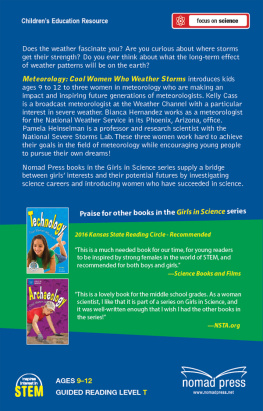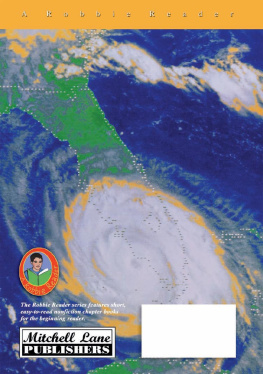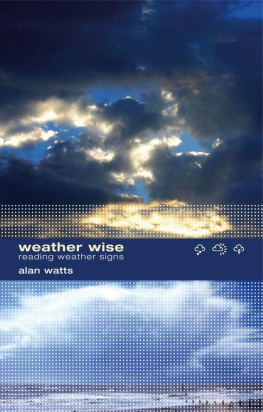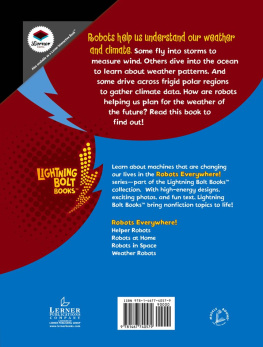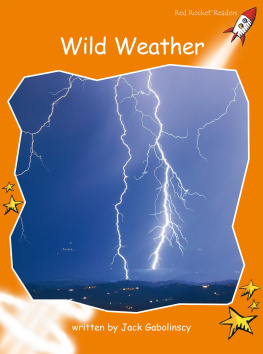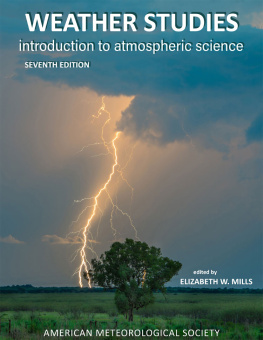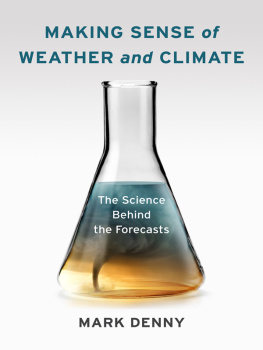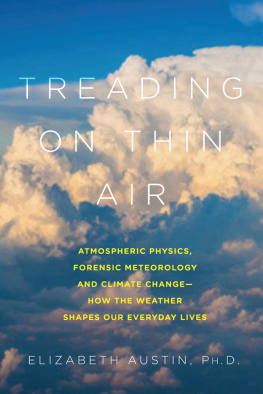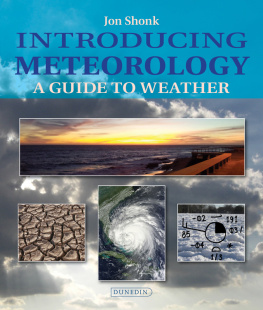
Nomad Press
A division of Nomad Communications
10 9 8 7 6 5 4 3 2 1
Copyright 2017 by Nomad Press. All rights reserved.
No part of this book may be reproduced in any form without permission in writing from the publisher, except by a reviewer who may quote brief passages in a review or for limited educational use .
The trademark Nomad Press and the Nomad Press logo are trademarks of Nomad Communications, Inc.
ISBN Softcover: 978-1-61930-541-0
ISBN Hardcover: 978-1-61930-537-3
Educational Consultant, Marla Conn
Thank you to the American Meteorological Society.
Questions regarding the ordering of this book should be addressed to
Nomad Press
2456 Christian St.
White River Junction, VT 05001
www.nomadpress.net
~ Titles in the Girls in Science Series ~



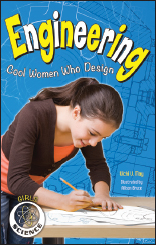
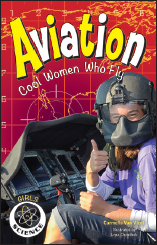



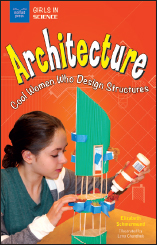
Check out more titles at www.nomadpress.net
How to Use This Book
In this book youll find a few different ways to explore the topic of women in meteorology.
The essential questions in each Ask & Answer box encourage you to think further. You probably wont find the answers to these questions in the text, and sometimes there are no right or wrong answers! Instead, these questions are here to help you think more deeply about what youre reading and how the material connects to your own life.
Theres a lot of new vocabulary in this book! Can you figure out a words meaning from the paragraph? Look in the glossary in the back of the book to find the definitions of words you dont know.
Are you interested in what women have to say about meteorology? Youll find quotes from women who are professionals in the meteorology field. You can learn a lot by listening to people who have worked hard to succeed!
Primary sources come from people who were eyewitnesses to events. They might write about the event, take pictures, or record the event for radio or video. Why are primary sources important?

Use a QR code reader app on your tablet or other device to find online primary sources. You can find a list of URLs on the Resources page. If the QR code doesnt work, try searching the Internet with the Keyword Prompts to find other helpful sources.

CONTENTS
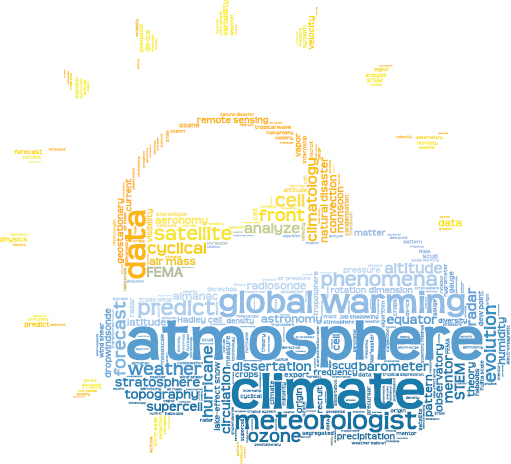

What are you going to wear tomorrow? Will soccer practice be canceled because of rain? Is it going to be hot enough to go swimming? Maybe youll have a day off from school because of the snow! Our entire lives are affected by the weather. It can be a perfect day to have a cookout or storms can make it dangerous to step out the door. The people who study meteorology help us stay safe and help us understand what is happening above our heads.
Nature is so powerful, so strong. Capturing its essence is not easyyour work becomes a dance with light and the weather. It takes you to a place within yourself.
Annie Leibovitz,
photographer
Meteorology is the study of the atmosphere and everything that happens there, including the weather. The word meteorology comes from the Greek word meteoron , which translates to something that happens high in the sky.
IMPORTANCE OF METEOROLOGY
Meteorology affects day-to-day life. It impacts how we dress, our travel plans, and business. From the earliest beginnings of human history, weather has played an important role. For example, humans realized that weather has a lot to do with the outcome of crops. Seamen learned to read the skies and adjust sailing routes and schedules based upon weather. Good weather meant abundant crops and easy travel. Bad weather resulted in limited food supplies and the destruction of ships.
Countries that exported goods across oceans soon learned the importance of trade winds. When ships traveled with a strong trade wind, it traveled faster and reached its destination sooner. Against these winds, shipping took longer and cost more money.

Some of the most dramatic photographs are because of weather
photo credit: NOAA/Department of Commerce, Ralph F. Kresge
Weather also affects humans through natural disasters, which can be devastating. Floods, tornadoes, and hurricanes are just some of the weather phenomena that can claim lives and wipe out communities. Thats why the weather forecasts of meteorology are so important.
Accurate weather forecasts can save lives, but its not the only type of meteorology. In recent years, meteorologists have begun working more closely with climatologists as knowledge about global warming has increased.
Climate is what we expect, weather is what we get.
Mark Twain,
writer
Most American Meteorological Society (AMS) members (96 percent) believe climate change is occurring. Global warming may impact the frequency or severity of extreme weather and events, such as hurricanes. Changes in precipitation patterns lead to flooding in some areas and drought in others.
Relationships between climate change and weather are being studied by the National Center for Atmospheric Research (NCAR) in Boulder, Colorado. NCAR studies the atmosphere and how it is being affected by global changes. Surface and ocean temperatures have increased. Polar ice has shrunk significantly. The earths sea levels rose about 7 inches during the last century and are continuing to rise. These changes affect all life on Earth.
Although weather can be devastating, it is also fascinating to many people. Are you mesmerized by the power of a thunderstorm? Do you wonder how tornadoes form? Weather invites the questions what, where, when, how, and why. Meteorologists seek to answer those questions, and by doing so, help others.
Next page
